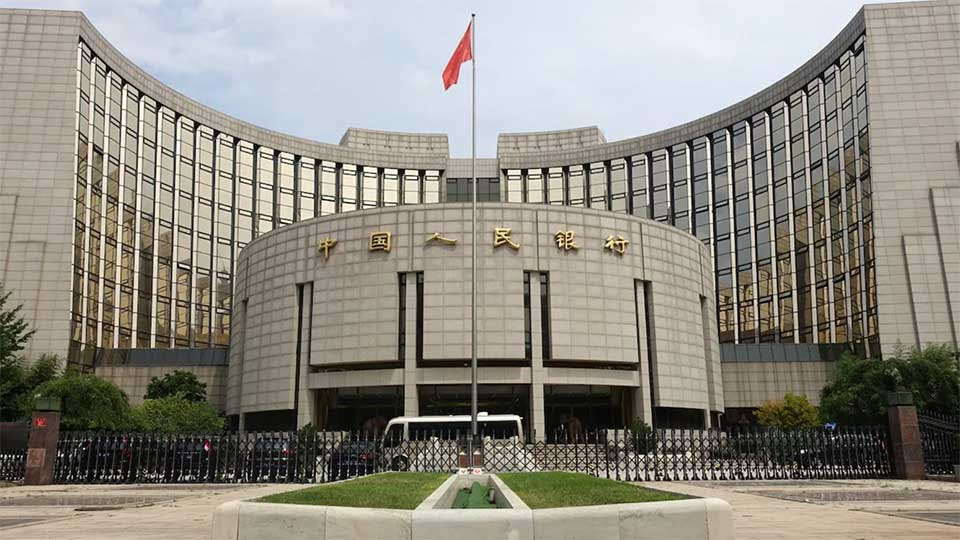
By Laurissa Mühlich, Thomas Goda, and Marina Zucker-Marques
Since the 2008 global financial crisis, central bank swaps have emerged as an increasingly important pillar of the Global Financial Safety Net (GFSN), the network of institutions and arrangements that aim at supporting countries during times of financial distress. Previously, the GFSN was comprised solely of the International Monetary Fund (IMF), but over time has been expanded through the emergence of regional financial arrangements (RFAs) and the increasing use of bilateral central bank currency swaps as supplementary forms of crisis finance.
By December 2023, the overall size of the GFSN was about $5 trillion (the IMF with $1 trillion, RFAs with $1.5 trillion and swaps with an estimated $1.5 trillion excluding the unlimited swaps network among advanced countries), representing 3.8% of global gross domestic product (GDP). This is relatively small, given that, for example, in 2021, during the COVID-19 pandemic, the global economy contracted by 3.9%, or roughly the size of the GFSN.
Concerningly, access to what little crisis finance exists is highly unequal across country income groups. This inequality is driven predominantly by diverging access to currency swaps.
Many academic papers focus on swaps of specific central banks, including the impactful role of swaps from the U.S. Federal Reserve (Fed) during the 2008 crisis, while recent scholarly contributions have argued that the People’s Bank of China (PBOC) acts as “quasi-lender of last resort” by dispersing swaps to Belt and Road Initiative (BRI) countries.
Currency swaps from these two powerful central banks can provide a lifeline to countries struggling with financial crisis, but are swaps from either the Fed or PBOC broadly accessible to countries in need, or like the rest of the GFSN, is there a deep inequity in access?
In a new working paper published by the Boston University Global Development Policy Center, we move beyond the singular focus of either the Fed or the PBOC, taking a dual approach that finds that swaps from the PBOC and the Fed have more similarities than previously thought.
Utilizing a novel dataset of 410 currency swap agreements covering 194 recipient countries from 2007-2022, we show that the Fed and PBOC have a much higher likelihood of providing currency swaps to countries in financial crisis and with high external debt levels than other central banks. Our data is sourced from the Global Financial Safety Net Tracker, an interactive database developed by the Boston University Global Development Policy Center, Freie Universität Berlin and the United Nations Conference on Trade and Development (UNCTAD).
However, our analysis also reveals important differences between the PBOC’s and the Fed’s presumed status as a quasi-lender of last resort: notably, it is mostly the PBOC that provides developing countries with swap access. Approximately 80% of swap provisions that originate in developing countries come from China, and nearly 40% of Chinese swaps are directed towards other developing economies.
In contrast, the Fed’s swap agreements are concentrated on advanced economies, with Mexico and Brazil the only developing countries to receive swaps from the Fed. Moreover, as Figure 1 shows, the Fed has not expanded the number of recipient central banks since 2009, while only renewing swaps as needed, whereas the number of Chinese swap recipients has expanded over the years.

Note: This figure shows the evolution of the Fed and PBOC swap agreements over time, distinguishing between first and renewed agreements.
Thus, some authors argue that PBOC swaps with developing economies fill a void left by the Fed due to a systemic bias against poorer nations in currency swap provision and within the greater GFSN. However, as is the case for the Fed and other central banks, a country’s income level plays a significant role in PBOC swap provision when it is in a financial crisis or has a high external debt level: in general, advanced economies are more likely to receive a swap during a crisis than middle-income countries, while low-income countries are completely excluded from the swap safety net.
The unequal access highlights the geopolitical dimensions of currency swaps as crisis finance, with implications for global financial stability. The reliance on the Fed and the PBOC as quasi-lenders of last resort and the exclusion of many developing countries from swap liquidity lines pose systemic financial risks. As central banks seem to prioritize their strategic and national interests over global stability in their decisions to provide swap liquidity, global financial stability and crisis management increasingly depend on the preferences of large economies like China and the U.S. rather than on global financial stability being provided as a public good.
Although the two large central banks are both playing a role as providers of international liquidity, they are not a substitute for a true global lender of last resort. More than ever, it is fundamental that the IMF play this role adequately, but for this, it will not only need to reform its program conditionalities but increase its firepower.
With global interest running higher for longer, negative net transfers to developing countries and building debt distress, it is urgent for countries in need to have access to a predictable, accessible voluminous lender of last resort – perhaps combined with debt restructuring – lest they fall through the net into deeper financial crisis.
Laurissa Mühlich is a research associate at the Brazil Research Center of the Institute for Latin American Studies at the Freie Universität in Berlin, Germany and a Non-resident Research Fellow with the Global Economic Governance Initiative at the Boston University Global Development Policy Center.
Thomas Goda is a professor of economics at the School of Finance, Economics and Government at Universidad EAFIT in Medellin, Colombia.
Marina Zucker-Marques is a senior academic researcher for the Global Economic Governance Initiative at the Boston University Global Development Policy Center. Follow her on X: @MarinaZucker.








